 The Breadfruit Institute is implementing a model in sustainable and regenerative organic agriculture to promote food security and a healthy environment through our breadfruit agroforestry demonstration.
The Breadfruit Institute is implementing a model in sustainable and regenerative organic agriculture to promote food security and a healthy environment through our breadfruit agroforestry demonstration.
What is agroforestry?
Agroforestry is a method of farming that integrates trees, shrubs, and other plants with crops and/or animals in ways that provide economic, environmental, and social benefits.
What about breadfruit agroforestry?
Breadfruit has long been an important staple crop and a primary component of traditional agroforestry systems in Oceania. In addition to providing food and goods, these breadfruit agroforests provide broad ecosystem benefits such as soil and water conservation and maintenance of biodiversity essential to long-term island habitation.
Why incorporate regenerative organic agriculture?
Regenerative organic agriculture focuses on soil health which provides a healthy food system and biodiversity. Farming practices are managed in a cyclical system with biomass and waste products utilized within the plot as mulch, compost, and fertilizer.
RODALE Institute along with major contributors, including Patagonia, designed 3 Pillars for Regenerative Organic Certification standards that encompass soil health, animal welfare, and social fairness. Click here for more information and certification standards.

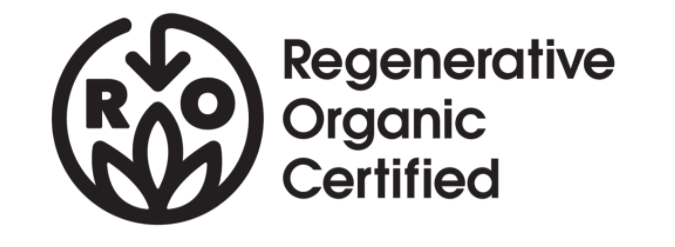

What’s happening now with the Breadfruit Institute and breadfruit agroforestry?
Various pilot projects around the world are currently being established using regenerative organic practices.
Hawaii
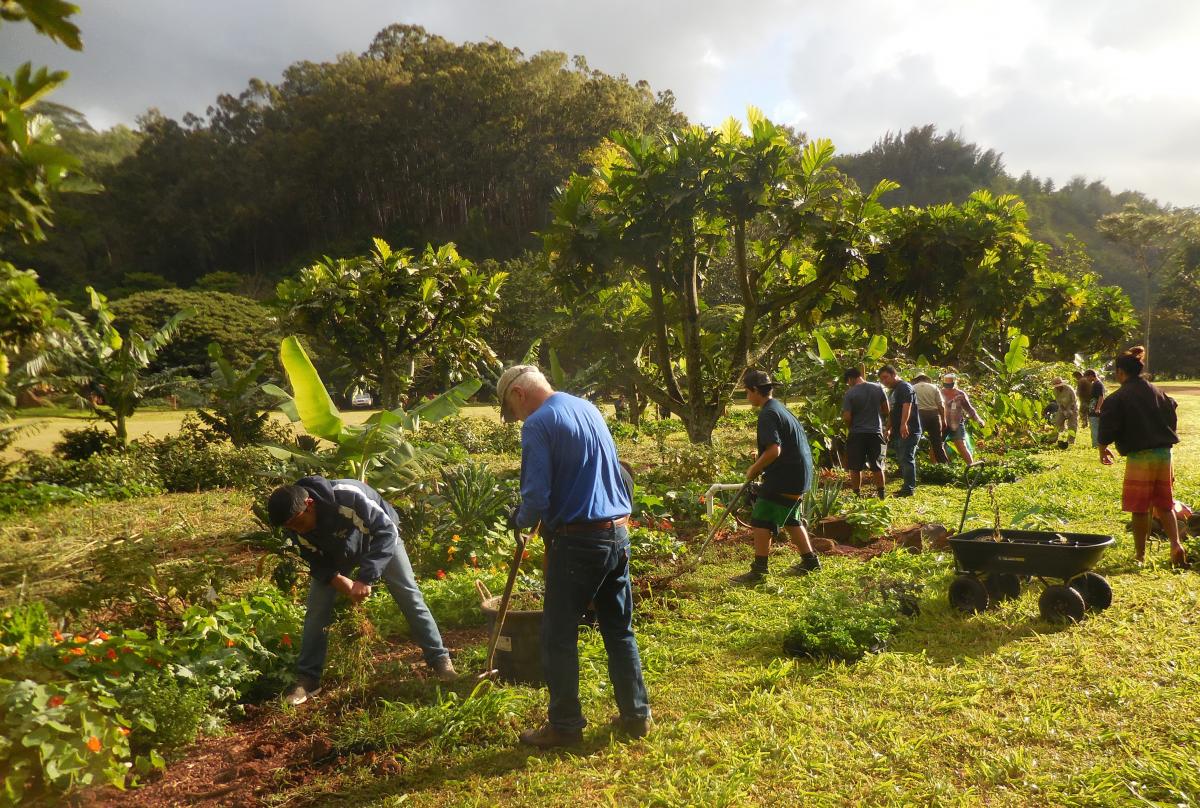 A Regenerative Organic Breadfruit Agroforestry 2-acre demonstration in the Breadfruit Research Orchard in McBryde Garden has been installed with four themes/areas: Shade-Grown Understory Crops, Heritage Pacific Island, Contemporary Tropical, and Regenerative Agroforestry. More than 100 plant species and varieties have been planted making this a dynamic demonstration that changes over space and time.
A Regenerative Organic Breadfruit Agroforestry 2-acre demonstration in the Breadfruit Research Orchard in McBryde Garden has been installed with four themes/areas: Shade-Grown Understory Crops, Heritage Pacific Island, Contemporary Tropical, and Regenerative Agroforestry. More than 100 plant species and varieties have been planted making this a dynamic demonstration that changes over space and time.
Puerto Rico
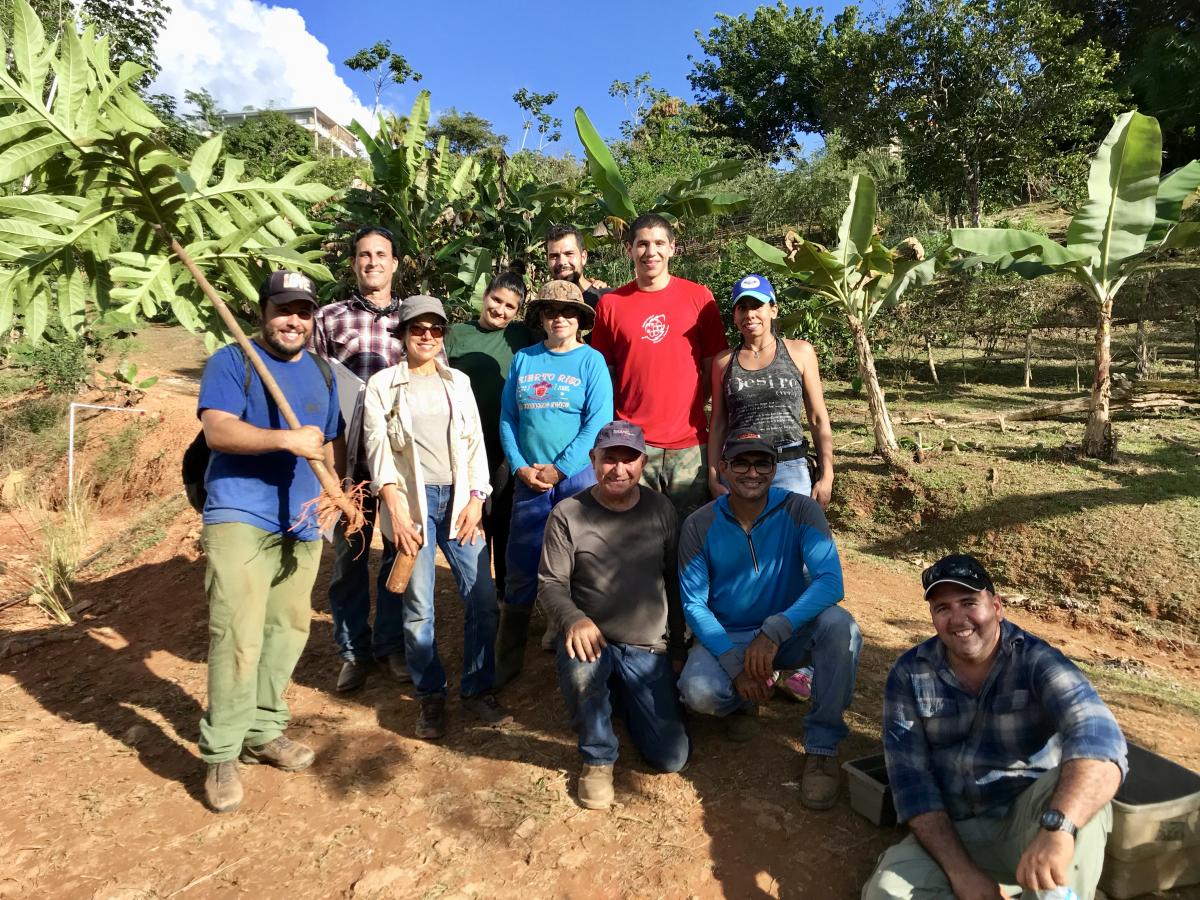 The Breadfruit Institute is helping implement sustainable and regenerative organic breadfruit agroforestry projects in Puerto Rico to help promote food security and economic development. In December 2018 a workshop was held as part of a pilot project to expand forest onto private farms to conserve wildlife and provide farmers with a very productive and resilient system. The planting took place on MikoNokus, a five-acre farm, in the Mayaguez mountains. The project continues to be monitored and maintained till the next planting phase in summer 2019.
The Breadfruit Institute is helping implement sustainable and regenerative organic breadfruit agroforestry projects in Puerto Rico to help promote food security and economic development. In December 2018 a workshop was held as part of a pilot project to expand forest onto private farms to conserve wildlife and provide farmers with a very productive and resilient system. The planting took place on MikoNokus, a five-acre farm, in the Mayaguez mountains. The project continues to be monitored and maintained till the next planting phase in summer 2019.
Jamaica
A pilot breadfruit agroforestry project is being implemented in 2019 at the Plantain Garden River Agro-Park in Golden Grove, St. Thomas. Project participants are working closely with the GWG Organic Research Station in Pear Tree River. The project is managed and supported on the ground by the Source Farm Foundation.
Education and Community Outreach
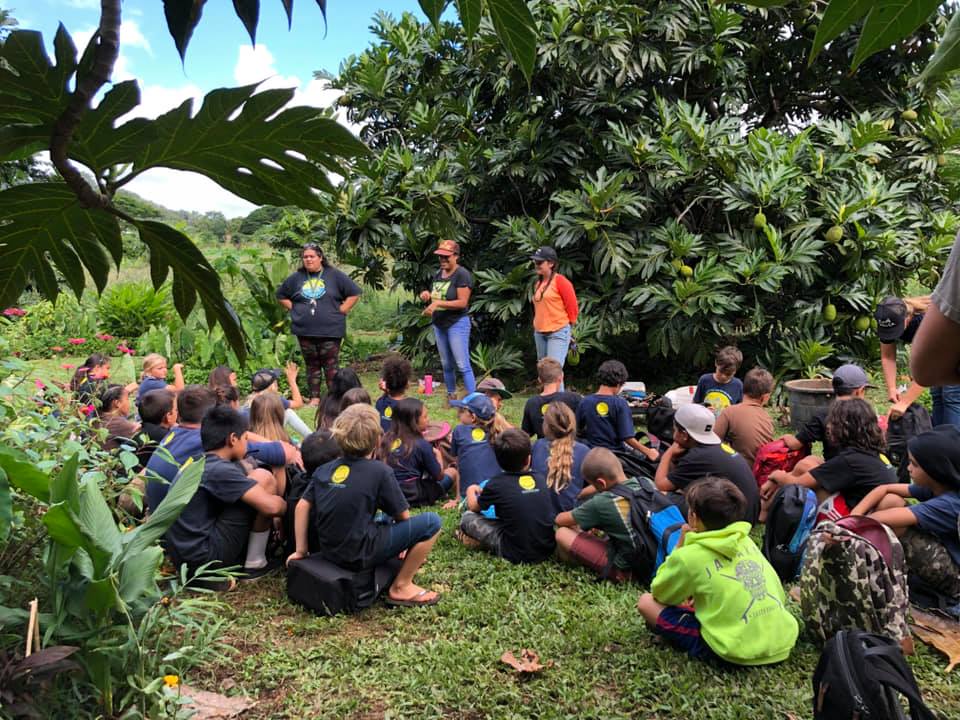 Educational organizations and other community groups help to make the ROBA project a success. Our hands-on approach in teaching students about the concept of regenerative agriculture has influenced people on how to farm responsibly in the tropics and enjoy healthy, organic produce. For more information on how you or your group can be part of our regenerative organic breadfruit agroforestry project, please visit https://ntbg.org/support/volunteer.
Educational organizations and other community groups help to make the ROBA project a success. Our hands-on approach in teaching students about the concept of regenerative agriculture has influenced people on how to farm responsibly in the tropics and enjoy healthy, organic produce. For more information on how you or your group can be part of our regenerative organic breadfruit agroforestry project, please visit https://ntbg.org/support/volunteer.
Funding for the Regenerative Organic Breadfruit Agroforestry pilot projects and education and community outreach is made possible by Patagonia Provisions® and the Ceres Trust.


Breadfruit Agroforestry Standards Publication and Manual
“Agroforestry Standards for Regenerative Agriculture” DPI Sustainability 2018, 10(9), 3337 by Craig Elevitch, Diane Ragone, and Niki Mazaroli was published as a blueprint in regenerative organic agroforestry practices and standards. Click here for more information.
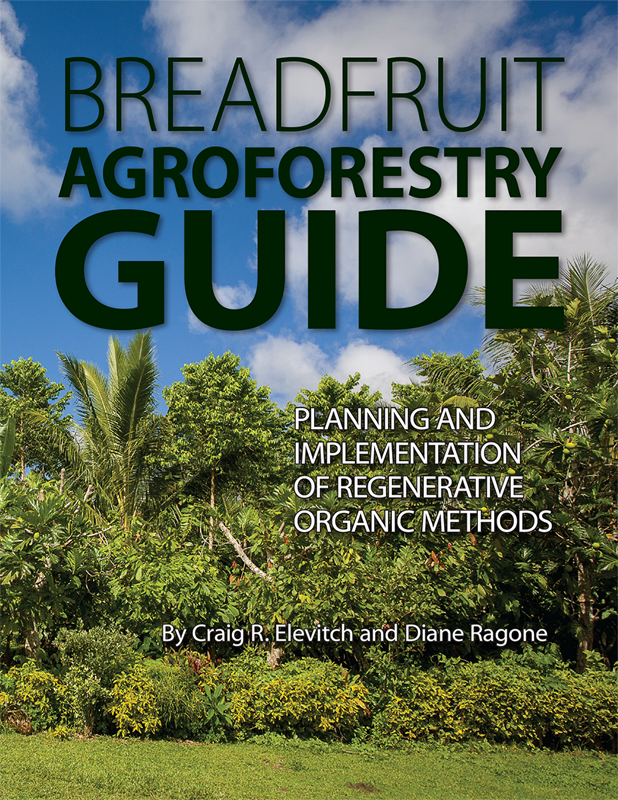 The Breadfruit Agroforestry Guide presents techniques that can sustain productivity for long periods of time, while regenerating land degraded by erosion, compaction, overgrazing, and loss of organic matter. It covers subjects that include recognizing breadfruit varieties, agroforestry planning, planting, and maintenance, selection of suitable accompanying crops, value-added products, and economic evaluation. The guide targets a range of growing scenarios from backyard gardens to large farms in the tropics.
The Breadfruit Agroforestry Guide presents techniques that can sustain productivity for long periods of time, while regenerating land degraded by erosion, compaction, overgrazing, and loss of organic matter. It covers subjects that include recognizing breadfruit varieties, agroforestry planning, planting, and maintenance, selection of suitable accompanying crops, value-added products, and economic evaluation. The guide targets a range of growing scenarios from backyard gardens to large farms in the tropics.
The handbook, written by Craig R. Elevitch and Diane Ragone, developed with funding by Patagonia Provisions®, the State of Hawai‘i Department of Agriculture, Western Sustainable Agriculture Research and Education, the Kaua‘i County Office of Economic Development and published by the Breadfruit Institute of the National Tropical Botanical Garden, Kalāheo, Kauai, and Permanent Agriculture Resources, Hōlualoa, Hawai‘i.
Hard copies can be ordered from Amazon. Click here to purchase on Amazon.com
.svg)

